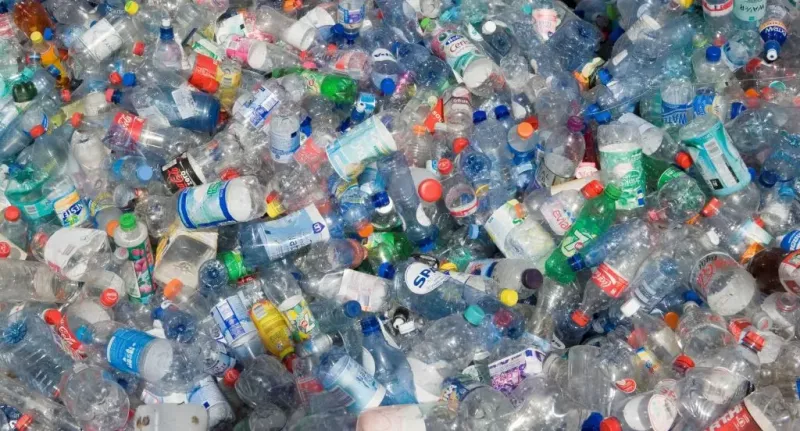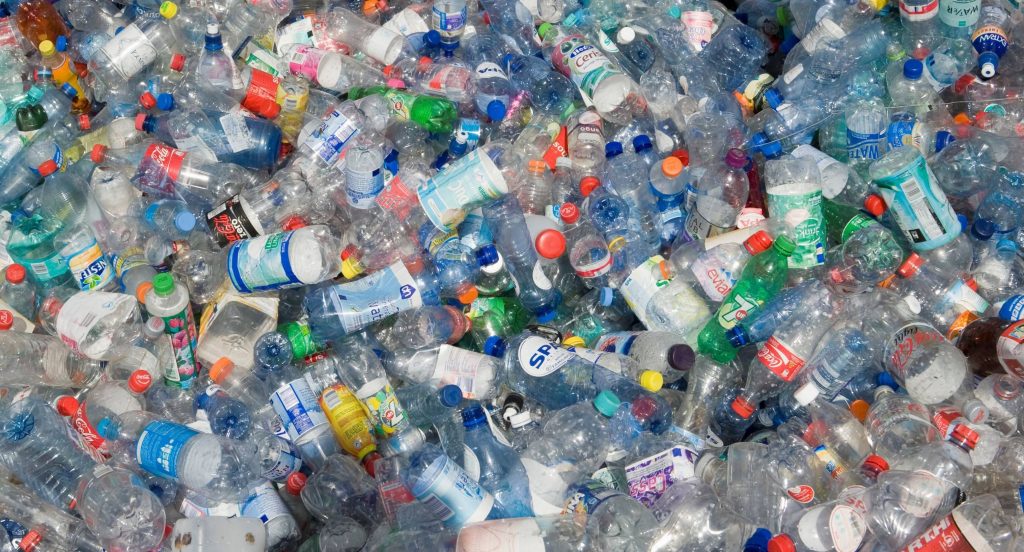What’s lurking in your body? Mayo probes health risks of tiny plastic particles


Whoa! What the ________________?

By: Susan Murphy

Similar to natural elements like iron and copper, people can ingest, absorb or even inhale microplastics and nanoplastics and their chemical additives.
A landmark study just published in the New England Journal of Medicine links microplastics and nanoplastics found in plaques of human blood vessels to a potential increased risk of heart attack, stroke or death.
Building on previous discoveries and these recent findings, the exposome research of Konstantinos Lazaridis, M.D ., and his team at the Mayo Clinic Center for Individualized Medicine , is at the forefront of exploring how external exposures — such as microplastics and nanoplastics, chemicals and pollution — influence health.
 Konstantinos Lazaridis, M.D.
Konstantinos Lazaridis, M.D. Exposome research investigates the cumulative environmental exposures throughout a person's life and how those exposures interact with genetic factors to affect biology and health.
"We plan to investigate the systemic effects of microplastics and nanoplastics and their chemical additives, not just on liver health, but overall human health," says Dr. Lazaridis, the Carlson and Nelson Endowed Executive Director for Mayo Clinic's Center for Individualized Medicine.
Dr. Lazaridis has dedicated his career to investigating the genetic and environmental underpinnings of rare liver diseases, such as primary sclerosing cholangitis and primary biliary cholangitis .
Tucked beneath the protective right rib cage, the human liver is a vital organ, often referred to as the "body's powerhouse" due to its pivotal role in digestion and blood detoxification. While genetics play a role in its overall function, emerging research reveals environmental exposures also have a significant influence over liver health.
Do microplastics affect liver health?
Dr. Lazaridis seeks to draw parallels from existing medical knowledge on exposures of essential metals like iron and copper and their effect on liver function and disease. In the field of hepatology, it is well known that iron and copper, obtained mainly from dietary sources, play pivotal roles in critical processes such as oxygen transport and red blood cell production.
 A close-up view of white and blue microplastic pieces on a fingertip.
A close-up view of white and blue microplastic pieces on a fingertip. Excessive accumulation of these otherwise innocuous metals, because of genetic defects, can lead to liver damage and disease.
Microplastics and nanoplastics are miniscule fragments resulting from the breakdown of larger plastic items. They are often laced with chemical additives to enhance their flexibility and durability. Microplastics and nanoplastics have been found to infiltrate every corner of the globe. Their small size allows them to be ingested, absorbed, or inhaled, raising potential health risks.
Dr. Lazaridis emphasizes these findings raise concerns about the long-term effect of microplastics and nanoplastics, particularly for young people.
He says the urgency of the research is underscored by the current rate of plastic production , which stands at an estimated 400 million tons per year — a number projected to double by the year 2050.
"Plastics have made our lives more convenient and spurred many medical advances, but we must understand their impact on human health for the years to come," Dr. Lazaridis says.
Ultimately, he hopes to advance the understanding of long-term implications of microplastic and nanoplastic exposures, and to chart a course for individualized therapeutic interventions in a comparable way clinicians have for iron and copper accumulations in susceptible people.
Do Stay On Topic!
Do Add Something Substantive or Be Gone.
No personal or ad hominem attacks, spamming, or advertisements.
No Trolling.
No Mocking Others. (Your comment may be removed without additional warning.]




Uh-oh! I think we are in 'trouble'! I just have to wonder if some conservatives will stand in the path of 'correction' of this problem shouting : "STOP!"
There is some danger from this. Long ago I bought a plastic cutting board because I thought it would be more germ free than wood, but recently I switched back to using wood.
Oh, it gets worse. . . unfortunately for 'us' - the whole population is at 'stake' over this!
 Plastics are a 'way of life' across the planet!
Plastics are a 'way of life' across the planet!
P.S. This is not really a Liberals vs. Conservatives issue. (Microplastics do not have any political affiliations!)
LOL! We're talking about health. I guess I could have 'formatted' or categorized it differently. "Silly me."
The world is binary for many here.
For some reason I don’t use that word.
Good, the word doesn’t fit much beyond computer language.
So. . . plastics are 'turning on' (in quotes) civilization: Any thoughts will help farther the discussion. /s
Do you mean people are over using, or misusing plastics?
Society-at-Large (world-wide) is probably overusing plastics. . .:
And others use the words “Red” & “Blue” & “Purple” ( also commonly used by news sites.
THE QUESTION:
Should this plastics 'crisis' turns out to be a "CRISIS" of national importance,
will our NEXT NEW leader in the WHITE HOUSE be a science 'Do-er'
seeking a real-world policy solution to overuse (abuse) of plastics, or a
science 'Loser' denying science its proper diagnosis and real-world policy correction?
READ: All about What is Lurking in your Body!